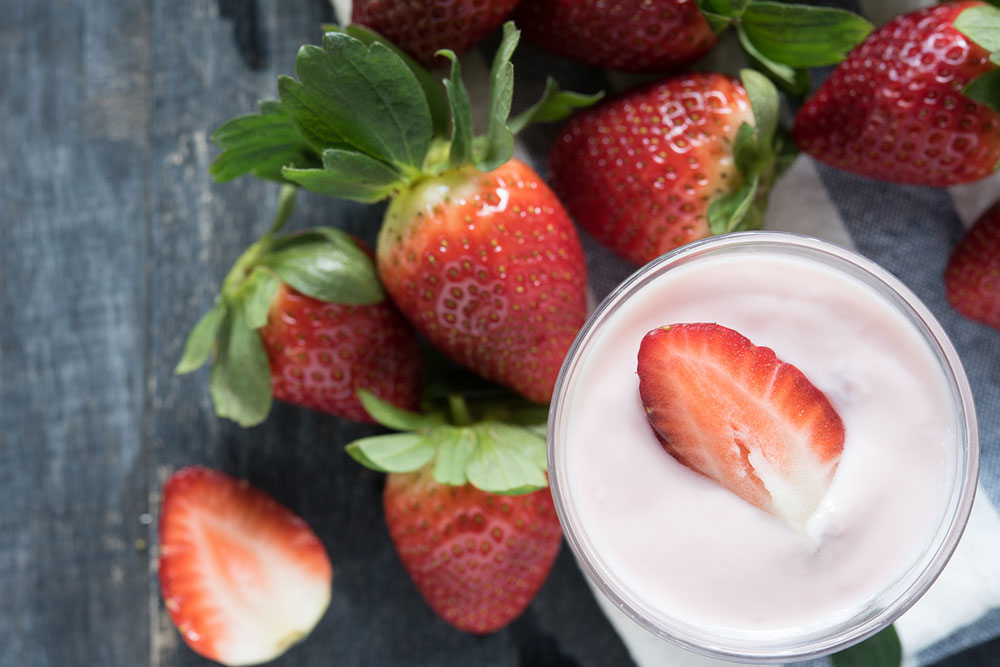
Ulcerative colitis – Foods to eat and avoid
Ulcerative colitis (UC) is a severe condition that causes inflammation and ulcers in the digestive tract. It may affect the innermost lining of the large intestine, which is also known as the colon and rectum. The symptoms of UC can develop slowly over time and usually unexpectedly. An expert may recommend different treatment options to manage the condition. Patients may be directed to eat and avoid certain foods to reduce the risk of ulcerative colitis.
Foods to eat
A healthcare expert might recommend meal plans that include smaller portions and easily digestible foods. A few foods that one could add to their meal regime to improve their symptoms include:
Ripe bananas and canned fruits
Healthcare professionals may recommend ripe, soft bananas because they are packed with carbohydrates, protein, and fats. These properties offer energy, fat, and protein necessary for someone at risk of ulcerative colitis symptoms. Furthermore, canned fruits in their juice, such as peaches or pears, might not irritate the digestive tract.
Cooked carrots
Cooked vegetables, such as carrots, are soft, making them easier to digest. The foods also contain essential nutrients such as vitamins A and K, which could help improve one’s ability to fight the symptoms of ulcerative colitis. Before eating, vegetables should be cooked until they can be easily mashed with a fork to break down potentially irritating fiber.
Yogurt
Experts may recommend eating yogurt to people who are not lactose intolerant. Dairy products can bestow some protein and probiotics in the body, which are live bacteria that may help the digestive system. One should purchase yogurt that mentions “live and active cultures” on the packaging. Moreover, it is recommended to avoid yogurt that contains large chunks of fruit, which could be hard to digest.
Salmon
People affected by ulcerative colitis and lactose intolerance can speak to an expert about introducing salmon to their meal plan. The seafood adds more protein to the diet that does not come from red or processed meat. Salmon is also a healthy source of omega-3 fatty acids that could help reduce inflammation. Other seafood options include shrimp and tuna.
Peanut butter
Spreads like peanut butter are one of the healthiest options to manage ulcerative colitis because of their protein and healthy fat content. One should consider picking creamy peanut butter instead of chunky to avoid having to digest tough nut pieces, as it may trigger irritation during a flare-up. One should also consider eating peanut butter on bread or spreading it on a tortilla. Other options to consider include cashew butter and almond butter.
Food to avoid
A healthcare expert may recommend avoiding various foods as they might trigger or worsen a flare-up in people with ulcerative colitis. They are as follow:
Whole grains
Including this option in one’s diet may prove difficult for people with ulcerative colitis due to its high fiber content. Whole grain flour, which retains the germ and bran, is rich in fiber. However, consuming other whole-grain starches that contain the fibrous endosperm, germ, and bran may lead to irritation and trigger a flare-up.
Whole nuts
One should avoid whole nuts because they are rich in sulfur content. And this might trigger symptoms of ulcerative colitis. A few whole nuts to avoid are pecans, cashews, almonds, and peanuts. One should also avoid pistachios, macadamia nuts, and hazelnuts. Though eating whole nuts is not advisable during a flare-up, experts may recommend walnuts during the remission period as they have anti-inflammatory and antimicrobial properties that may help prevent UC and damage to the mucous membrane in the stomach.
Fibrous fruits and vegetables
It is advised that individuals with symptom flare-ups should exclude fibrous fruits and vegetables from their meal plans. One should avoid consuming raw fruits and vegetables that are cruciferous, those that are raw or dried, have a peel or skin, or have seeds that cannot be removed. However, it is essential to consult with a healthcare expert before removing vegetables and fruits from the meal regime as they provide several essential nutrients for the body.
Sugary foods
Foods rich in sugars, such as candies, juices, and baked goods, are usually UC triggers. A high-sugar meal regime can also make one more susceptible to UC flares when one is in periods of remission. Individuals should also remember that switching to sugar-free foods may have downsides. For instance, sugar-free gum and sugar-free drinks may contain mannitol and sorbitol, which are difficult for the body to digest and may trigger a UC flare-up.
High-fat foods
Someone at risk of ulcerative colitis should avoid foods high in fats as this may put them at a greater risk of flare-ups. Some foods to exclude from meal plans to manage UC are butter, coconut oil, margarine, cream, and fried foods like french fries.




